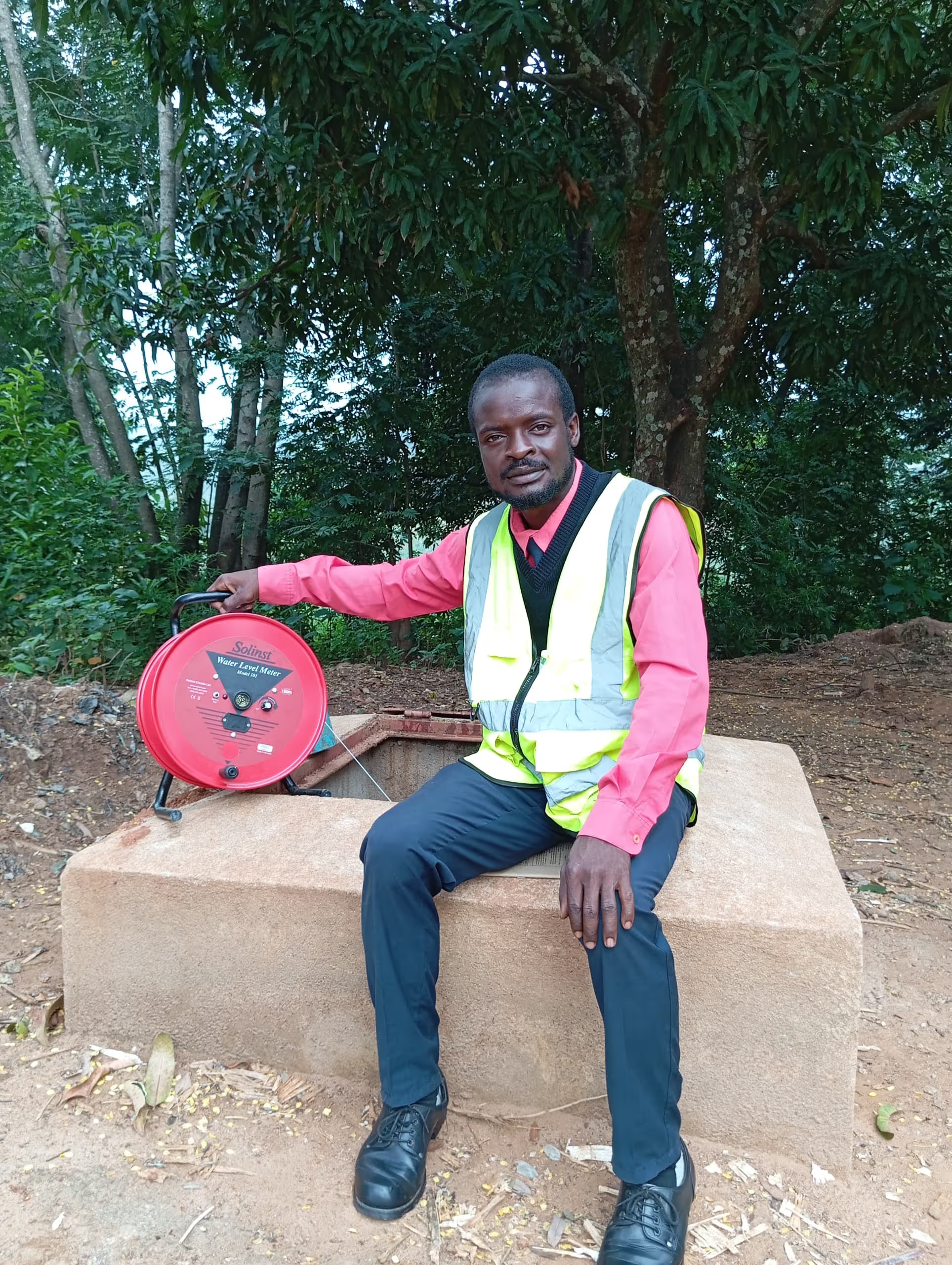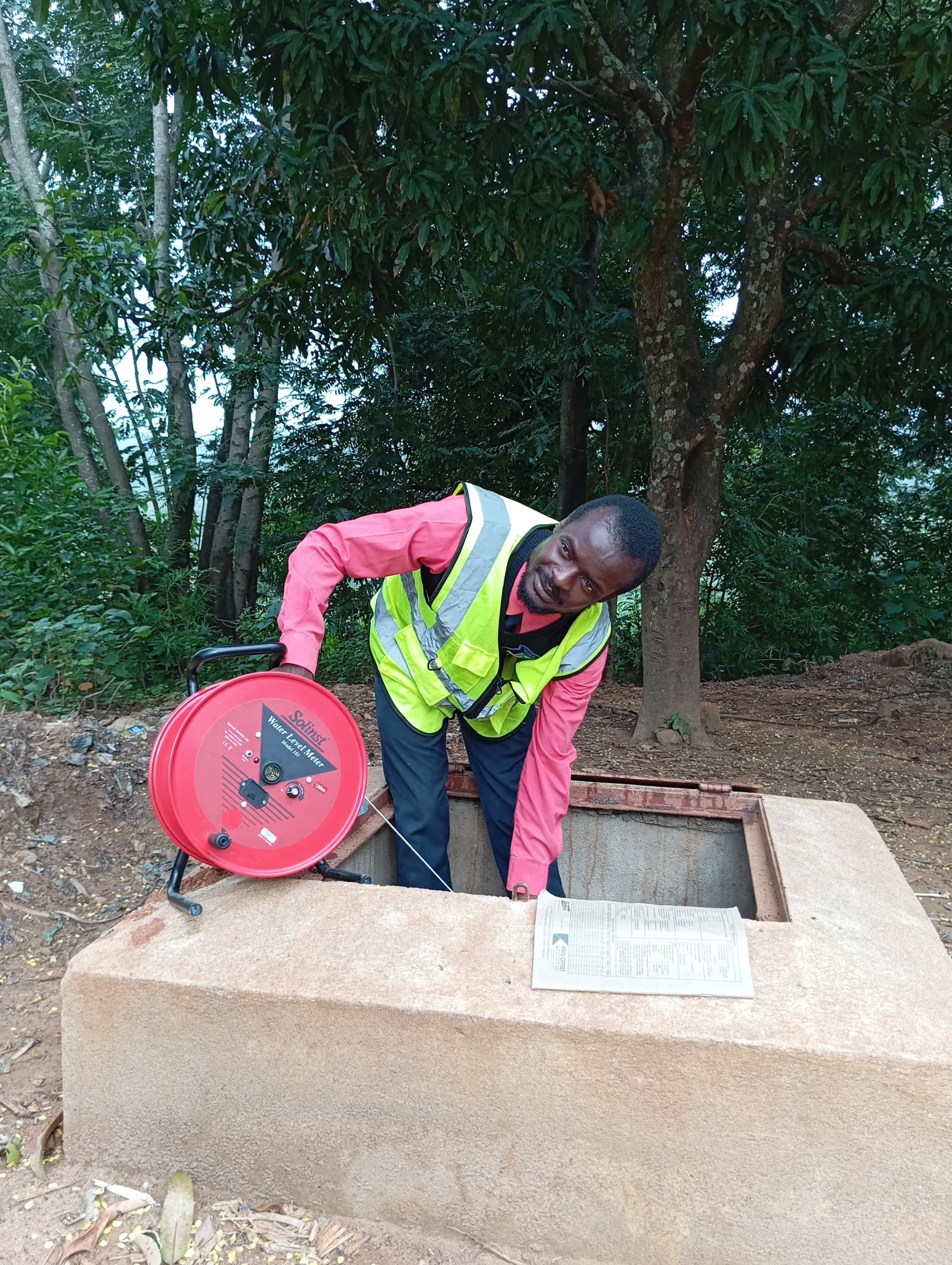Tumani Kaliyati is 35 years old, a teacher at Chidoole Primary School, and a familiar face in his community. He’s the kind of person who lights up the room with his voice when he sings, and you’ll often find him on the football field, showing off his footwork or sharing a laugh with his fellow teachers. He loves the little things in life, and until recently, he never thought much about the groundwater monitoring well that stood on the school grounds. It was just another fixture, tucked away in the corner of the campus, its purpose a mystery to him.
"I’d seen the well for years, but I didn’t understand why it was there. Why should I care about it?" Tumani recalls.
That all changed the day Tumani attended a sensitization meeting at his school, organized by the Ministry of Water and Sanitation in partnership with BASEflow. The meeting introduced him to the idea that groundwater monitoring, though often overlooked, plays a crucial role in sustainable water management. "After the meeting, something clicked," Tumani admits. "They explained how important groundwater is for everyone, even us here in our community. I realized I couldn’t just ignore it anymore."
It was in that moment, during that meeting, that Tumani felt the weight of something bigger than himself. Groundwater monitoring wasn’t just some technical task—it was the key to securing clean water for his community, and it was a job that needed attention. Tumani wanted to be part of that, so he volunteered to be trained as a gauge reader. The gauge reader training is part of a concept called Citizen Science, where communities are empowered to actively participate in expanding data collection to inform national-level decision-making. He didn’t know anything about collecting groundwater data at first, but he was eager to learn.
"At first, it was a bit intimidating, to be honest," he admits with a chuckle, as he recalls the experience of going through the gauge reader training. "I had never done anything like this before, but the training was hands-on, and the more I learned, the more I realized how much this matters." Tumani was trained on using water level dippers, taking manual measurements, recording data, and maintaining the equipment. He even learned how to transmit the data electronically in real time through the mWater platform on their mobile phones. As Tumani dug deeper into his new responsibility, he began to understand: his role was not just about numbers—it was about making sure his community would have enough water for years to come.
"At first, I was doing it alone," he explains. "But then I trained one of my colleagues. Now, he’s just as comfortable with the process as I am. It feels good knowing that if I ever leave, he can step in and continue the work."
In a country where resources are limited, the government recognizes the importance of people like Tumani, who are on the frontline of groundwater management, ensuring that the data keeps flowing from the community to the desk of decision-makers. As Kamoza Msonda from the Ministry of Water and Sanitation explains, "The work of Citizen Scientists is invaluable. They’re the ones on the ground, collecting data, protecting the wells, and ensuring that the monitoring continues. It’s crucial for long-term water management."
In a bid to provide ongoing support to Tumani, the Mwanza District Water Office has committed to visiting volunteers like Tumani more frequently, offering them support and advice as needed. This will not only strengthen the accuracy of the data but also foster a sense of collaboration between citizens and the state.
For Tumani, this isn’t just about data; it’s personal. 'This is our future,' he says, his expression quiet but determined. 'If we don’t take care of our groundwater, what will we have left? What will be left for our children.'
Gauge readers, like Tumani, are an essential piece of the groundwater management puzzle. By continuing to collect and report groundwater data, Citizen Scientists like him are playing a crucial role in shaping long-term water policies and resource management strategies. Through their efforts, groundwater—an invisible yet vital resource—becomes visible, helping to inform decisions that impact not only their community but also the nation’s sustainable water future.
LIke what we do ?
Please click the Download button below to get the manual and start contributing. Or if you like what we are doing and would like to support our work, click the Donate button.



